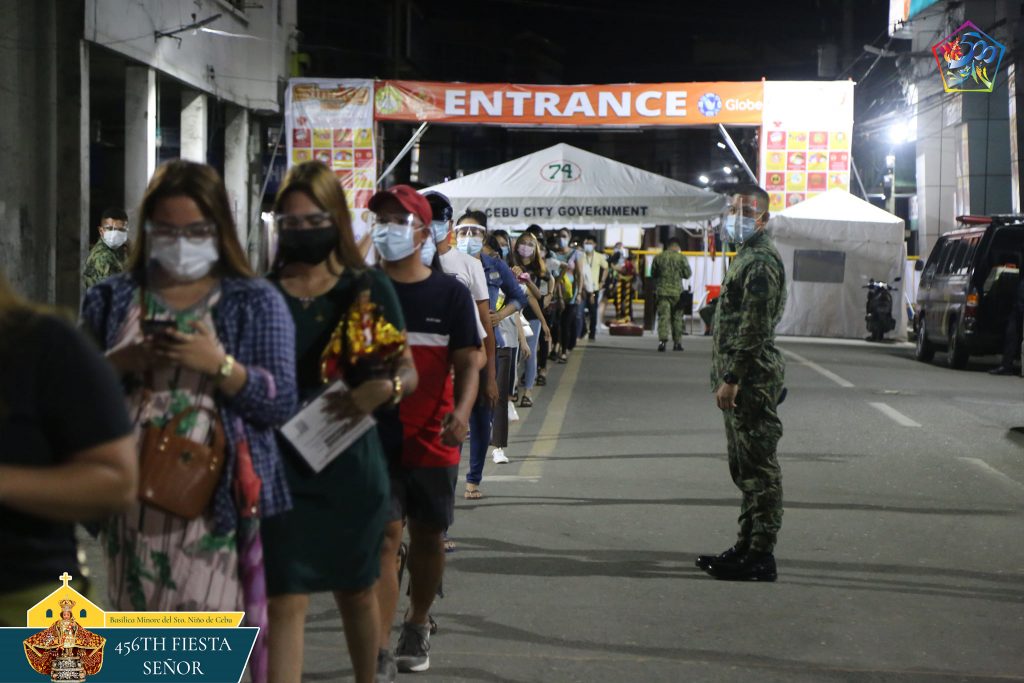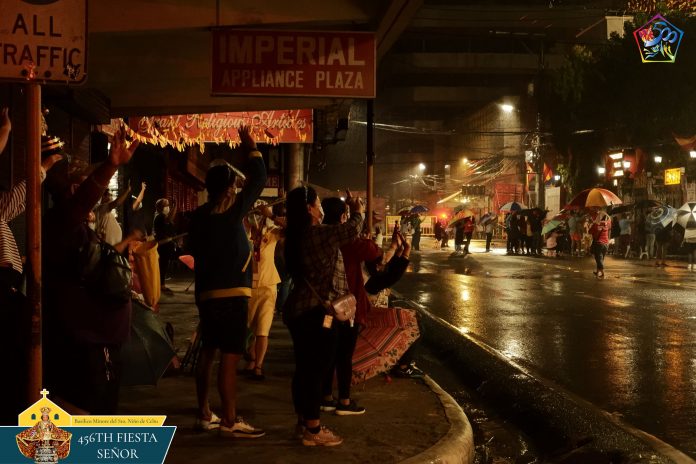Church officials in the Basilica Minore del Santo Niño in the city of Cebu have canceled “public Masses” ahead of the “feast” of the Child Jesus to prevent the spread of the new coronavirus disease.
The celebration of the annual “Sinulog” festival in honor of the Child Jesus in the central Philippines every January is the biggest cultural and religious celebration in the country.
Church officials, however, decided to cancel all public celebrations of the Holy Eucharist at the basilica for fear of the spread of COVID-19.
In a statement released on January 11, the basilica’s Augustinian friars said the decision was made for the “common good and benefit of all.”
Father Pacifico Nohara Jr., prior and rector of the centuries-old basilica, said the situation calls them to action to prevent coronavirus transmission.
In the past four days of the celebration of the Novena Masses, thousands of devotees flocked to the basilica despite reminders from church and government leaders to stay home.
“The situation has called us to rise above the situation and to choose this course of action for the common good and benefit of all,” read Father Nohara’s statement.
He said that protecting the health and well-being of the people is a matter of “Christian morals.”
“We ask for your great understanding and hoping that, with our hearts and minds attuned to God’s mercy to deliver us from the scourge of the pandemic, we can celebrate the entirety of the ‘Fiesta Señor’ in God’s perfect time,” said the priest.
He invited devotees of the Child Jesus to join in the remaining Novena masses and the feast day celebration online through various social media platforms.
The basilica and its compound will remain open for devotees who would want to visit.

The celebration of the annual “Sinulog” festival in honor of the Child Jesus opened on Friday, January 8, with prayers to stop the spread of the new coronavirus disease.
The “Sinulog” or dance prayer, the oldest festival in the country, usually gathers up to two million devotees, including local and foreign tourists, when it culminates in the third week of January.
“Sinulog,” from the Bisayan word “sulog” or water current, depicts the forward-backward movement of water that is danced to the beat of drums.
Devotees would wave their hands in the air and shout “Viva Senor Santo Nino!” of “Hail to the Holy Child! and “Pit Senor!” short for “Sangpit sa Senyor (Call to the King).”
Aside from the religious aspect of the festival, the “Sinulog” is also famous for its street parties, usually happening at night before and at the night of the main festival.
This year, however, the celebrations have been subdued due to the pandemic.
Church leaders have earlier announced the cancelation of traditional “Sinulog” activities like the “Walk with Jesus and Mary,” the “traslacion,” the “Penitential Walk,” and the fluvial procession that usually attracts millions of people.
The devotion of Filipinos, especially people from Cebu, to the Child Jesus has deep historical roots.
The image of the Holy Child was brought to the country by Magellan on April 14, 1521 as a gift to Queen Juana.
Juana’s husband, Rajah Humabon and some 800 natives, were also baptized, thus bringing for the first time Christianity in the country.
In 1565, when Spanish conqueror Miguel Lopez de Legazpi arrived in Cebu, a Spanish soldier found the image inside a burned house of a native.
Legazpi then named Cebu as the “City of the Most Holy Name of Jesus.”
Today, the image now known as Santo Nino de Cebu, is considered the oldest Christian relic in the country. It is enshrined in the basilica, one of the oldest churches in the country.









